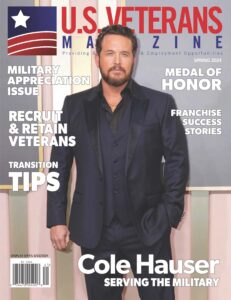By Natalie Rodgers
Going back to school, but don’t know what to study? It can be hard to pick a major that’s not only interesting, but will help you secure employment upon graduating. Luckily, your experience in the military along with your own personal tastes have given you a great foundation for what your future could hold. Here are some of the most popular majors pursued by military veterans:
Criminal Justice
Many veterans go on to pursue a career in law enforcement once leaving the service. Law enforcement jobs are usually federal, provide great opportunities for veterans and have many similarities to the skillsets you are given in the military. While having a degree in criminal justice isn’t required for all law enforcement-related positions, having a degree in criminal justice allows you to obtain higher level and specialized positions. Criminal justice majors all take courses in the court system, law enforcement, corrections, criminology and other classes that pertain to their particular interest in the field. Common specialties picked by these include corrections, forensics, paralegal studies, homeland security, law enforcement, public safety administration and more.
Education
Going from the military to a schoolyard might seem like a strange avenue, but many veterans are actually the perfect candidates for schoolteachers and administrators. Besides expertise in their area of study, teachers need to be effective leaders, problem-solvers, adaptable, organized and patient; the same qualities that military personnel are trained in during their service. If you have a passion for leadership and helping others, pursuing a degree in education could be the perfect job for you. Common majors and areas of study within education include child development, elementary education, special education and subject specific degrees (English, mathematics, biology, etc.) Those wanting to become teachers will also need their teaching credential, which usually can be obtained in 1-2 years. Those wanting to pursue a degree in education can also apply their military skillset to roles such as principals, administrators, school librarians and professors.
Information Technology
Especially if you worked closely with computers, networks and programming during your time in the service, pursuing a degree in information technology is an excellent move in your career strategy. With a rising need for technology experts in every field, IT employees have an abundance of job opportunities and a higher pay rate than many other careers. In pursuing a degree in information technology, you will learn the ins and outs of everything computers and networking, allowing you to pursue specialties in computer programming, information systems security, cybersecurity, software engineering and even web design. Since these degrees are so computer-focused, many of them are also offered partially or fully online, so you don’t have to make as many frequent trips to a classroom. Pursuing this degree while already having IT experience can also be helpful in securing higher level positions and salaries in the field.
Engineering
Many veterans are used to working in a hands-on environment and thrive in situations that call for problem-solving and creative solutions. If this sounds like you, you may want to consider pursuing a degree in engineering. Much like the IT field, engineering jobs offer high salaries and low unemployment rates. While pursuing their degree, engineering students take classes in science, mathematics, technology and other specialized classes pertaining to their specific interest in the field. There are several different career routes that can come from an engineering degree and many of them have their own degree programs. Specialties in the field include architecture, bioengineering, electrical engineering, cartography, construction, industrial engineering, mechanical engineering, nuclear engineering and surveying.
Healthcare
No matter where you served, chances are you received some level of medical training upon joining the military. If your service pertained to medical needs, or you want to continue your education in the field, healthcare is another popular career option for student veterans. Those studying healthcare will take extensive courses in biology, medicine and anatomy with other specialty classes depending on your major. Healthcare majors may need to receive the highest degree level possible, or may require extra schooling, depending on what avenue they pursue. Some healthcare majors include nursing, medicine, human development, health science, dietetics, pharmacy and social work.
Sources: Best Colleges Online, BLS, Coursera, US News



